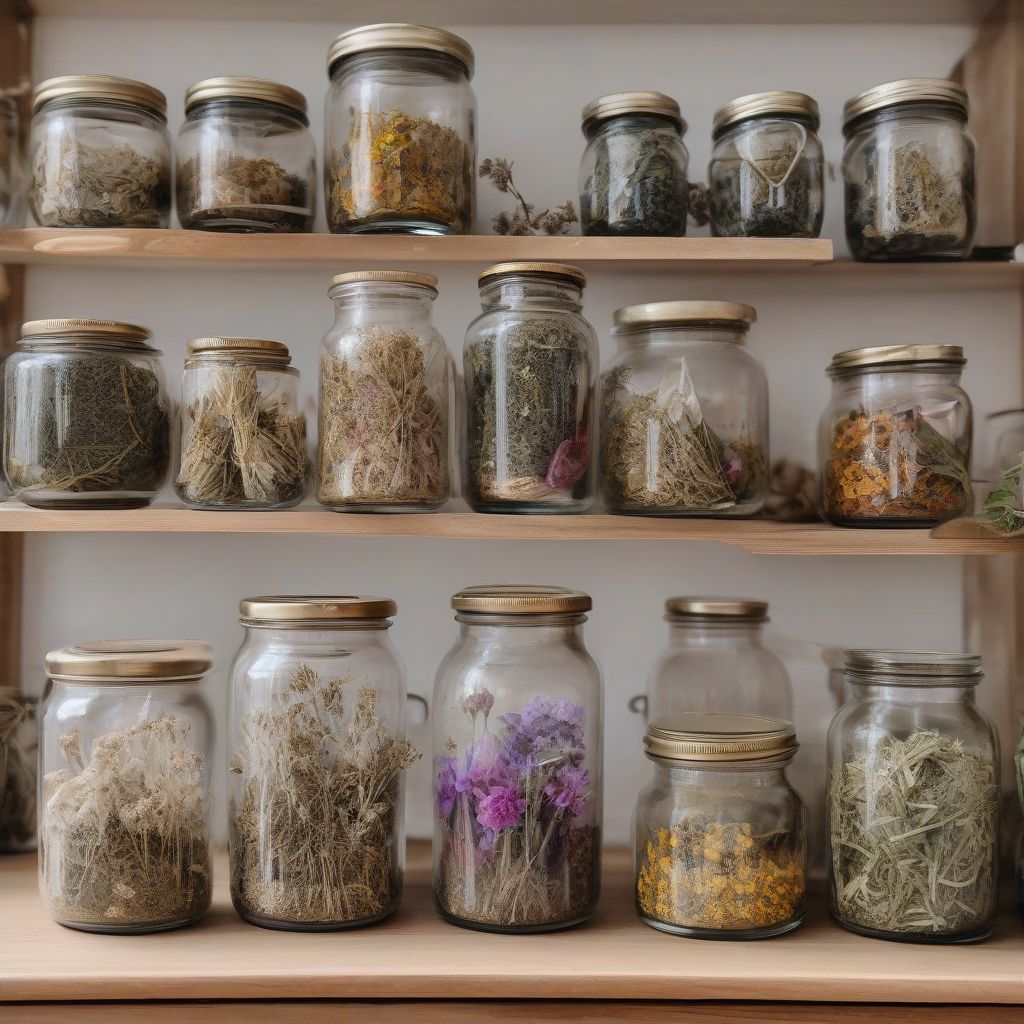Have you ever dreamt of a life where your medicine cabinet looks more like a flourishing herb garden? Imagine feeling empowered to soothe everyday ailments with the healing power of nature. Integrating herbs into your self-care routine might sound daunting, but it doesn’t have to be.
As a nutritionist and meal prep coach, I’ve seen firsthand how beneficial a holistic approach to health can be. It’s not just about what you eat, but also how you nourish your mind and body. Herbs, with their rich history and potent properties, offer a gentle yet effective way to do just that.
Understanding the Power of Herbs
For centuries, herbs have been revered for their culinary and medicinal properties. These potent plants contain natural compounds that can support various aspects of well-being, from boosting energy levels to promoting relaxation.
But before you start brewing your own concoctions, it’s crucial to remember that not all herbs are created equal. Each herb has its unique properties, benefits, and potential risks.
Best Practices for Safe and Effective Herbal Self-Care
1. Start with Knowledge: Your Guide to Herbal Safety
Think of this step as laying the foundation for your herbal journey. Before incorporating any herb into your routine, research is key:
- Identify the Herb Correctly: Ensure you have the right herb, as some plants may have similar names but different properties.
- Understand Dosage: “More is better” doesn’t apply here. Start with a low dose and gradually increase it if needed, always staying within the recommended range.
- Potential Interactions: Be aware of any potential interactions with medications, pre-existing health conditions, or allergies.
- Source from Reputable Suppliers: Choose high-quality, organic herbs from trusted sources to avoid contaminants.
2. Listen to Your Body: The Art of Observation
Your body is constantly communicating, and when it comes to herbs, paying attention is crucial.
- Start Slowly: Introduce one new herb at a time, observing how your body responds.
- Keep a Journal: Note any changes in your energy levels, mood, sleep patterns, or digestion.
- Respect Your Body’s Signals: If you experience any adverse reactions, discontinue use and consult with a qualified healthcare professional.
3. Finding What Works for You: Experiment and Personalize
The beauty of herbal self-care lies in its flexibility. There’s no one-size-fits-all approach.
- Explore Different Forms: Experiment with various forms of herbs like teas, tinctures, essential oils, or capsules to find what suits your preferences and needs.
- Create Personalized Blends: Combine herbs with complementary properties to enhance their effects. For example, blend chamomile and lavender for a calming nighttime tea.
- Incorporate into Your Routine: Make herbal self-care a ritual. Enjoy a cup of soothing tea before bed, add invigorating essential oils to your morning shower, or create a relaxing herbal bath soak.
Popular Herbs for Everyday Wellness
Here are a few examples of how herbs can be integrated into your daily routine:
For Stress and Anxiety:
- Chamomile: Known for its calming properties and ability to promote sleep. Enjoy it as a tea before bed.
- Lavender: Its soothing aroma can ease anxiety and improve mood. Use it in a diffuser or as an essential oil blend for massage.
- Ashwagandha: This adaptogenic herb helps the body cope with stress and promotes a sense of calm. It’s available in capsule or powder form.
For Energy and Focus:
- Ginseng: Known for its energizing effects and ability to enhance cognitive function. It can be consumed as a tea or supplement.
- Rosemary: Its invigorating aroma can improve alertness and memory. Add a few drops of rosemary essential oil to a diffuser while you work.
- Peppermint: This refreshing herb can boost energy and improve concentration. Enjoy it as a tea or add a few leaves to your water bottle.
For Digestion and Immunity:
- Ginger: A powerful digestive aid that can soothe nausea and reduce bloating. Consume it as a tea, add it to your cooking, or take it in capsule form.
- Turmeric: This potent anti-inflammatory herb supports gut health and boosts immunity. Add it to your diet or take it as a supplement.
- Echinacea: Known for its immune-boosting properties, echinacea can help fight off colds and flu. It’s available in tea, tincture, or capsule form.
 Herbs for Self-Care
Herbs for Self-Care
[amazon bestseller=”herbalism books”]
A Holistic Approach to Well-being
Incorporating herbs into your self-care routine isn’t just about addressing symptoms; it’s about cultivating a deeper connection with yourself and the healing power of nature. Remember to approach herbal self-care with respect, knowledge, and an open mind, and always consult with a qualified healthcare professional for personalized guidance.
As you embark on this journey, you’ll discover a world of natural remedies that can empower you to take control of your well-being and live a healthier, more vibrant life. So, why not invite the healing power of herbs into your life and experience the transformative benefits for yourself?
What are your favorite ways to incorporate herbs into your self-care routine? Share your thoughts and experiences in the comments below!
